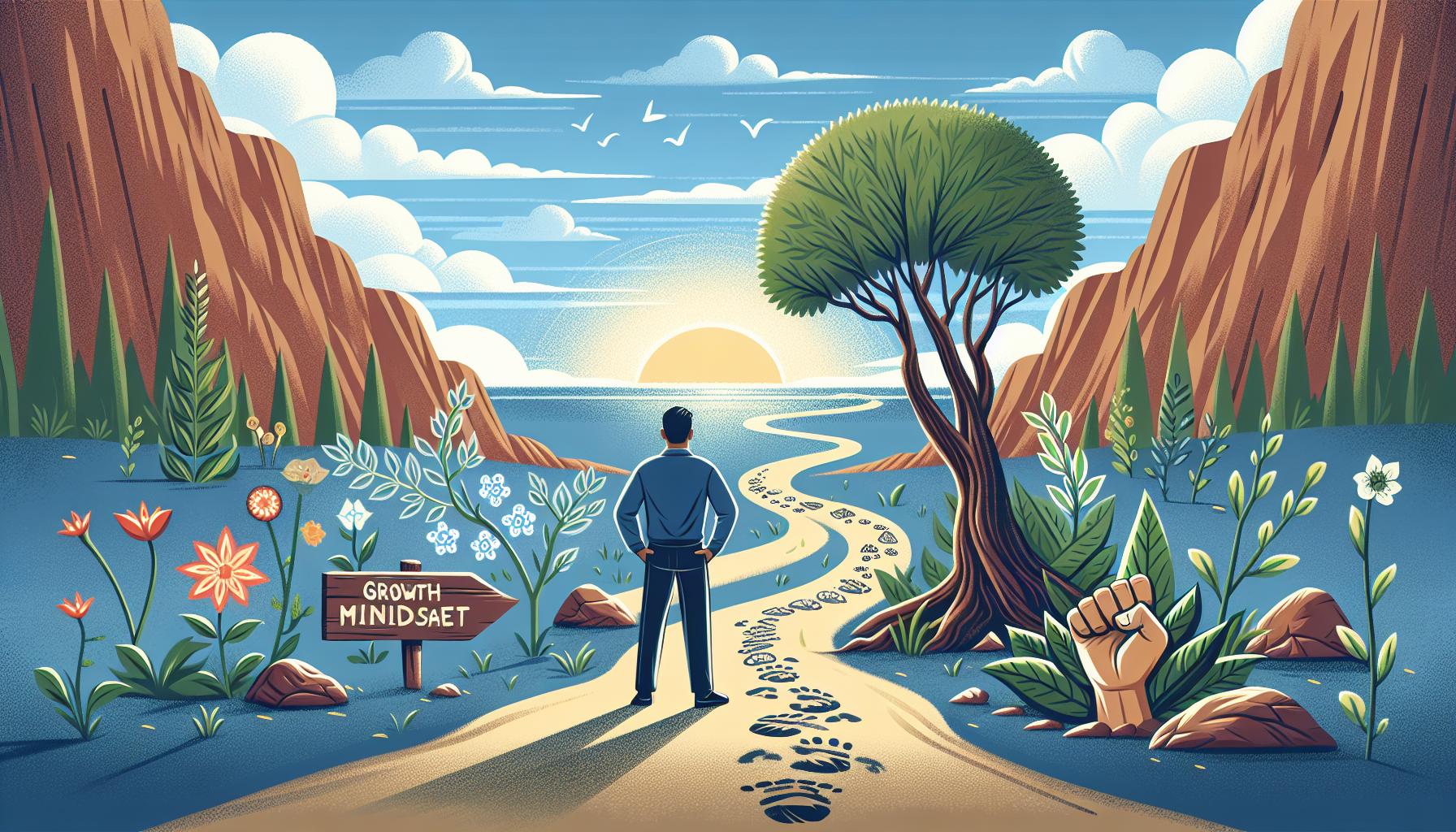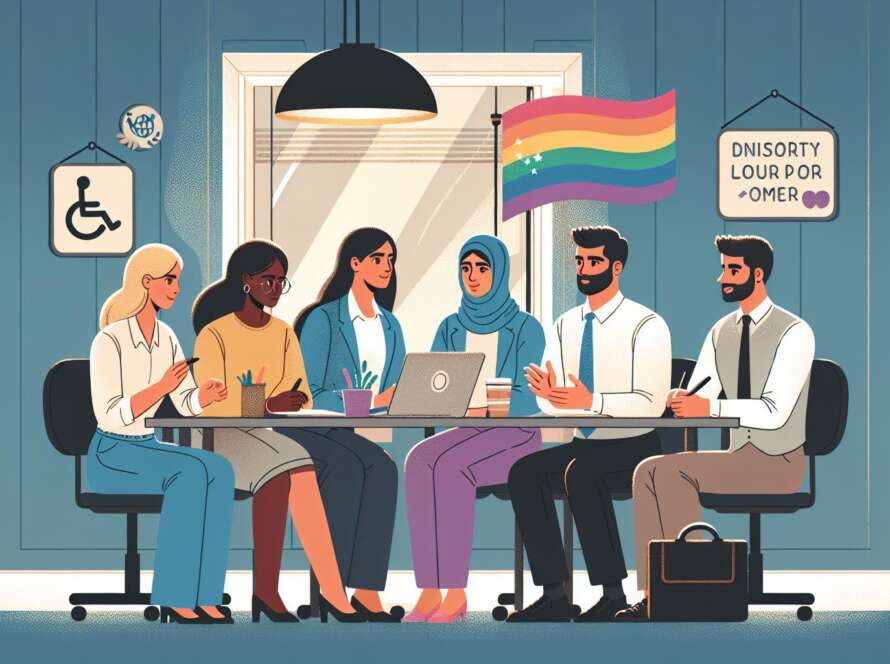If you’re anything like me, you’ve probably faced your fair share of life’s curveballs. That’s why when I stumbled upon “Adaptive Resilience” by Maria Santacaterina, I knew I had to dive in. This book isn’t just another self-help guide; it’s a roadmap to thriving in the face of adversity. Maria’s insights are like a light in the dark, guiding you through the storm with practical advice and heartfelt wisdom.
Why should you trust what I’ve got to say about resilience, you ask? Well, I’ve been in the trenches of personal development for years. I’ve read countless books, attended seminars, and even faced a few of my own life’s upheavals head-on. My journey has not only equipped me with the tools to bounce back but also the ability to discern which strategies truly work. And let me tell you, Maria’s approach is the real deal.
So, what are the key takeaways from this game-changing guide? First, it’s understanding that resilience is not a static trait but a skill you can develop. Second, Maria emphasizes the power of mindset in overcoming challenges. And lastly, the importance of a supportive community can’t be overstressed. Stick with me as we delve deeper into these insights and discover how “Adaptive Resilience” can transform your approach to life’s hurdles.
Key Takeaways from the Book
Embrace Resilience as a Learnable Skill
One of the first eye-openers for me was the idea that resilience isn’t just something you’re born with; it’s a skill you can develop. I’ve always admired people who seemed to bounce back from anything like they were made of rubber, but I never quite saw myself in that role. Santacaterina shattered this misconception early on, highlighting that, with the right mindset and tools, anyone can foster resilience. It’s an empowering thought that resilience isn’t fixed but rather something I can actively work on.
The Power of Mindset in Overcoming Challenges
Another major takeaway from “Adaptive Resilience” is the critical role that mindset plays in how we face life’s hurdles. Maria talks about the importance of adopting a growth mindset, a term coined by psychologist Carol Dweck, which means seeing challenges as opportunities to grow rather than insurmountable obstacles. This shift in perspective isn’t just fluff—it’s backed by decades of research in psychology. For example, a study published in the “Journal of Personality and Social Psychology” found that students with a growth mindset were more likely to persevere through challenging academic situations, seeing them as opportunities to learn rather than threats to their intelligence.
Cultivating a Supportive Community
As mentioned, the journey to resilience isn’t a solo mission. I’ve learned that having a supportive community matters more than I ever realized. Santacaterina dedicates an entire chapter to the significance of building and nurturing relationships that encourage growth and provide support during tough times. She emphasizes that it’s not just about having people to lean on but also about being part of a community where you can contribute and support others. This mutual exchange creates a resilient network, strengthening not just the individual but the group as a whole.
Understanding Resilience as a Skill

As I dove deeper into Maria Santacaterina’s insights in “Adaptive Resilience,” it became clear that resilience isn’t just some magical quality bestowed upon the lucky few. It’s a skill, and like any skill, it requires practice, patience, and persistence. Remember when I thought resilience was something you were either born with or without? Boy, was I wrong.
It’s All in the Approach
One of the first things that struck me was the idea that mindset plays a colossal role in how we face challenges. This isn’t just about seeing the glass as half full; it’s about understanding that every hurdle is an opportunity to learn and grow. I remember tackling a project that seemed impossible at first glance. With a growth mindset, not only did I complete it, but I also gained invaluable skills along the way. It was a real-life testament to Santacaterina’s theory.
Practice Makes Perfect
Another key takeaway was the concept of deliberate practice in developing resilience. It’s one thing to face difficulties; it’s another to reflect on these experiences, learn from them, and apply those lessons in the future. After a major setback in my career, I started journaling about the challenges I faced and how I responded to them. This practice helped me see patterns in my behavior and areas where I could improve. It’s a strategy highly recommended by experts like Angela Duckworth, who emphasizes the power of grit and perseverance.
The Power of Connection
Building a supportive community is another cornerstone of adaptive resilience. I’ve always believed in the saying, “You’re the average of the five people you spend the most time with.” Surrounding myself with individuals who encourage growth and offer support during tough times has been pivotal. Moreover, as Santacaterina highlights, it’s a two-way street. Contributing to your community not only strengthens your network but also bolsters your own resilience bank.
Through personal stories and insights, I’ve seen firsthand the transformative power of adopting a growth mindset, practicing resilience, and fostering community connections. Each step, no matter how small, is a leap towards becoming more resilient. After all, resilience isn’t a destination; it’s a journey.
The Power of Mindset in Overcoming Challenges

Ever wondered how some folks seem to bounce back from setbacks like they’re just hopping over a puddle? Well, I’ve discovered it’s all about the mindset. Maria Santacaterina nails this point in “Adaptive Resilience,” and boy, does it resonate with my journey. Let me share a bit about why your mindset is practically your superpower in the face of adversity.
Mindset Is Your Secret Weapon
I’ve lived through my fair share of “Oh no, not again” moments. And if there’s one nugget of wisdom I’ve gleaned, it’s that adopting a growth mindset is like equipping yourself with an invisible cape. Remember when I talked about seeing obstacles as opportunities? That’s not just motivational poster fluff; it’s a real strategy for growth.
For example, I once bombed a public speaking gig—think crickets chirping and all. But instead of letting that haunt me, I chose to see it as a stepping stone. It was rough, sure, but it sparked this burning desire to improve. That’s the growth mindset in action: embracing flaws and deliberate practice as paths to mastery.
Transform Challenges into Opportunities
It’s fascinating how our brain works, right? A study by Carol Dweck, the queen of mindset theory, showed that students who believed their intelligence could grow indeed improved their grades over time. If teenagers can do it, so can we. This isn’t just about academic smarts – it’s applicable to our everyday hurdles.
Imagine viewing every challenge as a puzzle rather than a roadblock. I applied this thinking when I started my blog. Trust me, the tech side of things was like deciphering an alien code. But with a little patience and a lot of Googling, I transformed what was once daunting into my playground. It was all about perspective.
Surround Yourself with Growth Mindset Champions
Here’s the kicker: you’re not in this alone. I’ve found that surrounding myself with folks who also embrace challenges has turbocharged my resilience. Remember the community aspect I mentioned earlier? It’s vital. We share our wins, our epic fails, and everything in between, constantly learning from one another.
One of my buddies, Alex, faced a similar setback in his startup venture. Instead of bowing down, he pivoted, learning from the feedback.
Importance of a Supportive Community

In my journey diving into the teachings of Adaptive Resilience by Maria Santacaterina, one gem that’s consistently shone through is the unrivaled power of a supportive community. I’ve seen first-hand how a network of encouragement can be the wind beneath our resilience wings.
Why You Can’t Go It Alone
Let’s get real for a minute. Trying to tackle life’s curveballs solo is like trying to climb Everest in flip-flops – possible, but why make it harder than it needs to be? Research shows that individuals with strong social support are more likely to thrive under pressure. A study published in the Journal of Psychological Science found that participants who believed they had strong social support were 50% more effective in completing a stressful task.
Personal Tale From The Trenches
I remember a time when I was at my lowest, battling job loss and personal doubts. It was the encouragement and honest feedback from my circle that pulled me back up. They didn’t just offer empty platitudes; they gave me constructive criticism, vital resources, and, most importantly, believed in me when I didn’t.
The Magic of Mutuality
In Adaptive Resilience, Santacaterina hits on a key theme: mutuality. It’s not just about having people to lean on; it’s about being someone others can count on too. This reciprocal energy creates a resilience loop that benefits the entire community. When I volunteered to mentor others facing career transitions, not only did I help them navigate their challenges, but I also reinforced my own resilience strategies, making them more ingrained and automatic.
Expert Insight
Renowned psychologist Dr. Julianne Holt-Lunstad has underscored the importance of community, stating, “Social connections not only impact our mental health but our physical health as well.” Her research points to the tangible health benefits of strong social bonds, including lower rates of anxiety and depression and even increased longevity.
Conclusion
Diving into “Adaptive Resilience” has been an eye-opener for me. It’s clear that the journey to resilience isn’t a solo mission. Having folks around who’ve got your back makes a world of difference. I’ve seen it in my own life and Maria Santacaterina’s insights just hammer it home. The takeaway? Don’t underestimate the power of a solid support system. It’s not just about getting by, it’s about thriving. So let’s not go at it alone. Let’s lean on each other, share the load, and build that resilience together. After all, we’re stronger in numbers.
Frequently Asked Questions
What is the main theme of the article?
The main theme revolves around the importance of a supportive community in fostering resilience, as discussed in Maria Santacaterina’s book “Adaptive Resilience.”
How does a supportive community benefit an individual facing challenges?
A supportive community benefits individuals by providing encouragement and strength, enabling them to handle stress more effectively and overcome challenges.
What kind of research is cited to support the article’s claims?
The article cites research indicating that individuals with strong social support are better at managing stress, showcasing the significant impact of community support on resilience.
Can you share a personal anecdote from the article?
The article includes a personal anecdote where genuine support from the community played a crucial role in uplifting an individual during tough times, illustrating the power of support in real-life situations.
What is the concept of mutuality mentioned in the article?
The concept of mutuality discussed in the article emphasizes the reciprocal nature of support within a community, highlighting how giving and receiving help strengthens communal bonds and resilience.
Who provides expert insights on the impact of social connections?
Psychologist Dr. Julianne Holt-Lunstad provides expert insights, stressing the profound effect of social connections on both mental and physical health, and thus, on building resilience.


